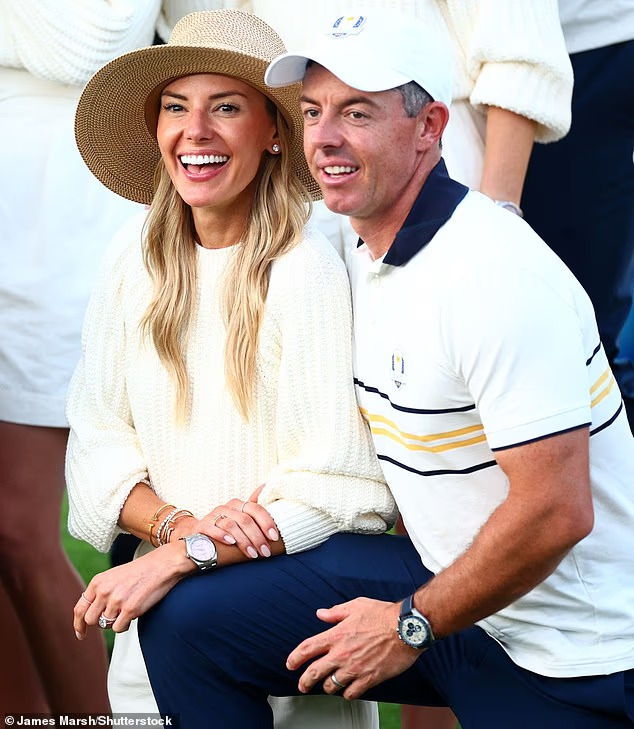The Ryder Cup Controversy: Don Rea’s Karaoke Incident and Rory McIlroy’s Struggles
Introduction
The recent Ryder Cup held at Bethpage Black has stirred significant controversy, primarily surrounding comments made by PGA of America President Don Rea and the treatment of golfer Rory McIlroy. As tensions escalated during the second day of competition, footage of Rea performing Eminem’s "Lose Yourself" went viral, raising eyebrows among golf enthusiasts and commentators alike. This article delves into the incidents that unfolded, examining the implications for the Ryder Cup and the sport at large.
The Ryder Cup: A Glimpse into Chaos
The Ryder Cup, a prestigious golf tournament contested by teams from Europe and the United States, often sees fervent fan engagement. However, during the recent clash, emotions ran high, particularly on Team Europe’s side. Rory McIlroy, a key player for Europe, faced hostile behavior from U.S. fans, which included homophobic slurs and personal insults. This chaotic atmosphere not only affected player performance but also raised questions about sportsmanship and fan conduct.
Don Rea’s Unsuitable Response
As McIlroy and his wife, Erica Stoll, endured this mistreatment, Don Rea’s reaction to the situation has drawn widespread criticism. Rea, during a post-match interview, downplayed the heckling, seemingly dismissing it as an expected part of the game. His statement that "things like that are going to happen" came off as tone-deaf. Such dismissive remarks fail to acknowledge the emotional toll on players and their families, particularly during a high-stakes event like the Ryder Cup.
Hole #1: The Karaoke Incident
At a crucial moment when tensions were peaking, Rea was filmed rapping "Lose Yourself" in a hotel setting, much to the disbelief of viewers. This moment, which many interpreted as a lack of seriousness towards the ongoing turmoil, went viral on social media platforms like Twitter. Critics argued that such behavior from the PGA president was inappropriate, especially considering the severity of the heckling experienced by McIlroy.
The Fallout: Apologies and Attention
As public outcry grew over Rea’s viral performance, PGA of America Chief Executive Derek Sprague issued a formal apology to McIlroy and Stoll. He acknowledged that the treatment they received was unacceptable and promised a concerted effort to improve the conduct of fans at future events. This quick pivot reflects the growing scrutiny that sports organizations face in the era of social media, where actions are instantaneously critiqued and disseminated.
Rory McIlroy’s Emotional Response
The events prompted an emotional reaction from McIlroy, who opened up about the abusive atmosphere that overshadowed his participation in the Ryder Cup. He articulated the impact of the fans’ vitriol, not just on his performance but also on his family’s well-being. This candid discussion highlighted the human side of professional athletes, who often find themselves at the intersection of public scrutiny and personal struggles.
Acknowledging Fan Behavior
In the aftermath of the chaotic events, Rea’s comments suggested a troubling perspective on fan behavior. He implied that if the American team was struggling, it was partially due to the booing from the crowd. This statement ignited further debate regarding the acceptable limits of fan engagement during sporting events. Should heckling be considered part of the game, or does it cross a line into harassment?
The Role of Sports Leadership
The leadership within sports organizations is under the microscope, as instances like these can have lasting repercussions on the reputation of the sport. Rea’s initial dismissal of abusive behavior raises essential questions about the values being upheld by those at the forefront of sports. Are leaders doing enough to create a safe and respectful environment for athletes, or is the pursuit of entertainment overshadowing ethical considerations?
The Impact on Future Ryder Cups
The events of this Ryder Cup could shape the future landscape of the competition. With discussions surrounding fan conduct entering the limelight, both the PGA and the European Tour may implement stricter guidelines and conduct rules. Such changes are necessary to preserve the integrity of the sport and ensure a more respectful atmosphere for all involved—players, fans, and officials alike.
Concluding Thoughts
The recent events surrounding the Ryder Cup serve as a cautionary tale about the delicate balance between fan engagement and athlete well-being. As the response to Don Rea’s karaoke moment indicates, the actions of leadership can significantly influence public perception and shape the ethos of the sport. Overall, this incident reminds us that while sports can evoke passion and excitement, they must also prioritize respect and humanity.
In the end, it is essential for sports organizations to learn from controversies like these. They should strive for better conditions for athletes while fostering a culture of respect among fans. The future of events like the Ryder Cup depends not only on athletic skill but also on the values upheld by everyone involved.


